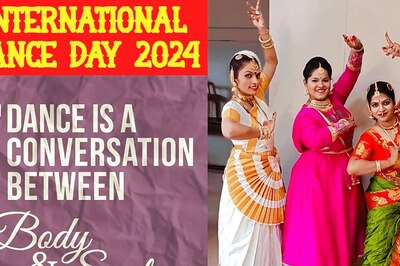
views
Although hugging is an everyday part of our social interactions which we don't give much thought to, new European research suggests that which side you hug from could depend on how you are feeling emotionally.
Carried out by a team of biopsychologists at Ruhr-Universität Bochum (RUB), Germany, the researchers embarked on the task of evaluating more than 2,500 hugs in different situations.
Although many hugs express affection towards loved ones, others can occur in more neutral or even negative situations, we hug when we are sad for example, or just to say hello.
"We wanted to know if hug-related behavior is affected by the emotional context of the given situation," explains lead author Julian Packheiser. "Moreover, we wanted to find out if motor characteristics such as handedness determine the lateralisation of the embrace."
To look at hugs in a negative and positive situation the team first looked at around 1,000 hugs at the international departures and arrivals terminals of a German airport.
During departure, they assumed that those giving and receiving hugs would be feeling negative emotions, partly due to saying goodbye and partly due to fear of flying.
On arrival, they expected that hugs would be accompanied by positive emotions due to being reunited with loved ones and relief that the flight was over.
In order to study hugs in a neutral situation the team analyzed video clips on YouTube in which actors offered blindfolded hugs to strangers in the street.
They found that, consistent with previous findings, most people show a preference for right-sided hugs in neutral situations.
However, when emotion is involved, whether positive or negative, people are more likely to hug from the left-side.
"This is because of the influence of the right hemisphere, which controls the left side of the body and processes both positive and negative emotions," explains Julian Packheiser. "When people hug, emotional and motor networks in the brain interact and cause a stronger drift to the left in emotional contexts."
In all three situations handedness and footedness also played a role, with right-handed people tending to hug the other person from the right side much more often than left-handed people.
However, the team also found that when an embrace occurred between men, they were more likely to hug from the left even in what would be considered a neutral situation.
"Our interpretation is that many men consider embraces between men to be something negative; therefore, they tend to perceive hugs as negative even in a neutral situation, such as saying hello," explained co-authors Sebastian Ocklenburg. Therefore, the the right hemisphere of brain is activated due to feeling negative emotions, and so the body moves in for a hug from the left.




















Comments
0 comment